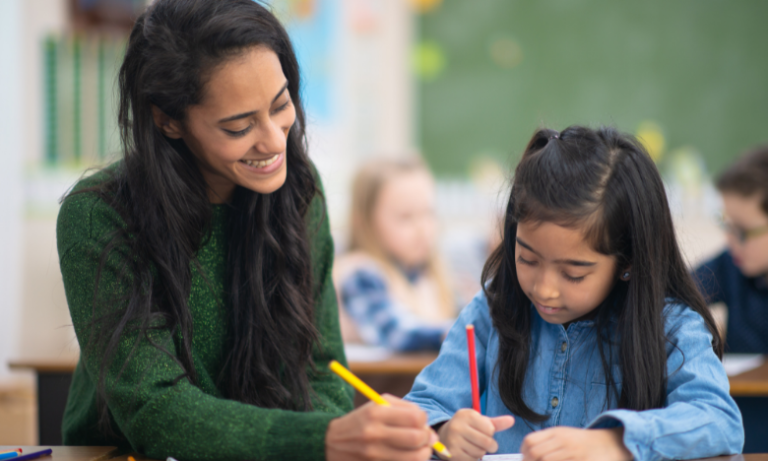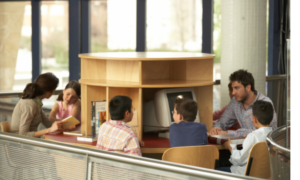
Role of a Special educator
The role of a special educator is to work with students with developmental disabilities, ranging from mild to severe needs. They are specialist teachers qualified and trained to work with children with learning disabilities or ADHD. These could include sensory, physical and locomotor, intellectual, language, learning and behavioural challenges. Special educators may work with mild to moderate needs students in mainstream classrooms or those with severe needs who may need more intensive support and an individualised curriculum. A special educator also works as a liaison between the student, other subject teachers, school administration and parents.
Role of a Special educator – Student interventions
Special education teachers are typically responsible for developing skills that will support the student in accessing the mainstream curriculum, and not particularly for teaching the classroom content. Depending on the student’s needs, special educators may work on skills in reading, writing, math, language development, physical and motor development, and socialisation. Special education support may also include reinforcement of classroom concepts across subjects, depending on the need and grade level. These sessions will typically be one-on-one or in small groups.
Role of a Special educator –Working with teachers
Special educators also work closely with subject teachers, and vice versa, in ensuring that the instruction and material are accessible and engaging for all students. Special educators and subject teachers work together to communicate the needs, goals, challenges and successes of the eligible for special education. Collaborative work ensures that the student’s needs are understood and met even when the special educator is not present in the classroom. Special educators also support the teachers in differentiating or modifying their teaching-learning materials (instruction, assignments, assessments) to suit learners’ individual needs.

Role of a Special educator – Supporting students in the classroom/ In-class support
Apart from working in collaboration with subject teachers, special educators often support students with disabilities in the classroom as well. This support could look different across schools and depend highly on the student’s need and the subject teacher’s requirements. Examples of support in the classroom may be helping the student understand the task, getting them organised, reading or writing for them, reinforcing instruction, encouraging their participation, etc.
Role of a Special educator – Co-teaching
Some schools have a co-teaching format, where a subject teacher and a special educator work together in the class for all students. The subject teacher is the ‘content teacher’, and the special educator is the ‘access teacher’. It means that the subject teacher is considered the expert on the content and maybe more heavily involved in certain aspects of the curriculum, such as planning the units, assignments, assessments, and grading. The special educator designs the content and delivers it in a manner that is accessible to all learners. They may support the subject teacher in designing flexible lessons, planning worksheets of different complexity levels, preparing different assessment types, etc. Co-teaching happens in diverse ways in various classrooms, e.g. one teacher may teach, while one may assist, or they may divide the class into two groups and teach parallelly. Sometimes the special educator may support a small group of students while the subject teacher addresses the rest of the students. Co-teaching, if done well, can help reach all learners by delivering a flexible curriculum with more supports built-in.
Role of a Special educator – Working with families
Special educators also work closely with families of students with learning disabilities to understand the student well and ensure that the parents reinforce the work done in school at home. Parents/guardians also need to understand the child’s needs and goals and work toward the same at home. For instance, if a student works well with a visual schedule in school, the parents should provide the same at home as well. A student who is learning second-grade sight words would benefit from reinforcement and use of the same concepts at home as well. Collaboration and regular communication between parents and the special educator help in the student’s progress.
Role of a Special educator – IEPs and Accommodations
Special educators are responsible for developing Individual Education Plans (IEP) for their students in coordination with teachers and parents. They also ensure that all students with disabilities who qualify for accommodations in the classroom and on assessments receive them.